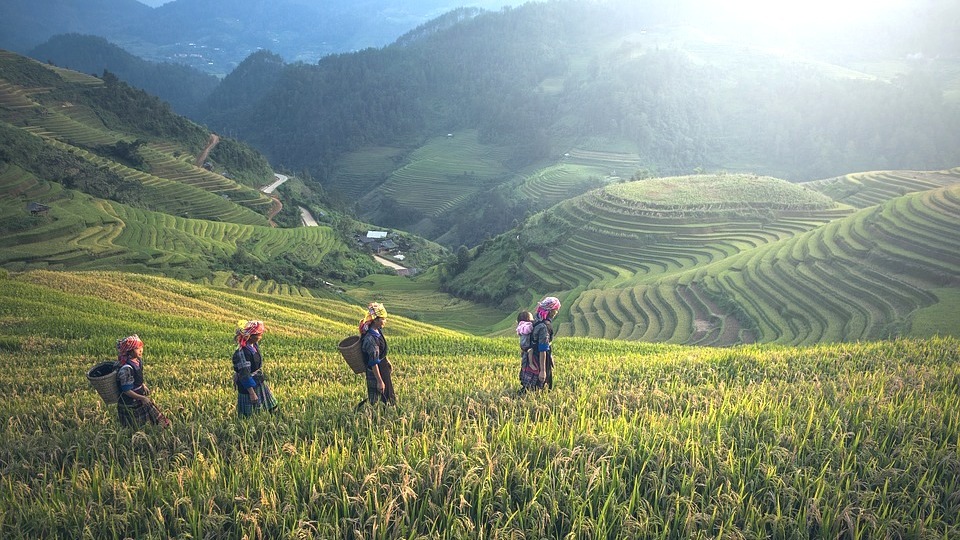Ancient and modern grains: intolerances, celiac and pesticides
Ancient and modern grains: intolerances, celiac and pesticides I wanted to write this contribution to make some clarity around some
Read more
 Sustainable nutrition is a principle based on a consumption of food with healthy nutritional characteristics, which requires a low ecological footprint in terms of land use, water resources used and factors necessary to produce it, with low carbon emissions and nitrogen. Sustainable food must therefore be attentive to the conservation of biodiversity and ecosystems, rich in local and traditional foods, fair and accessible to all. To continue this principle, however, it is necessary to review the vision that lies at the center between man and production; between man and nature; reporting the company towards a synchrony with the laws of the ecosystem. Today, modern agriculture, despite many technological advances, has created, in most cases, a production paradigm somewhat distant from the functional models of the ecosystem. We must therefore revise these principles by promoting a new agricultural model that guarantees man and the environment. The solution to this question lies in the agroecology that, together with the principle of Food Sovereignty, revises the models of production, distribution and access to food. We need to retrace a concept of global well-being that, by putting the ecosystem and society on the same level, can guarantee a new ethical and economic paradigm. Today, modern agriculture and globalization have diminished the focus on sustainability in favor of the intensification and industrialization of agricultural systems. The result of this phenomenon has been the vertiginous increase in globalized food production, but without bringing global improvements in the nutritional field. All this without solving the problem of hunger in the world, but even aggravating it. We are facing an agricultural system that has increased hunger in the world, increased diseases due to poor diet (obese, chronic disorders, etc.) and deteriorated, in just the arc of a little more than half a century those resources wisely preserved, protected and improved from our ancestors. It is urgently necessary to change direction and the reference term from which to start is precisely a new concept, integral, of sustainable nutrition.
Sustainable nutrition is a principle based on a consumption of food with healthy nutritional characteristics, which requires a low ecological footprint in terms of land use, water resources used and factors necessary to produce it, with low carbon emissions and nitrogen. Sustainable food must therefore be attentive to the conservation of biodiversity and ecosystems, rich in local and traditional foods, fair and accessible to all. To continue this principle, however, it is necessary to review the vision that lies at the center between man and production; between man and nature; reporting the company towards a synchrony with the laws of the ecosystem. Today, modern agriculture, despite many technological advances, has created, in most cases, a production paradigm somewhat distant from the functional models of the ecosystem. We must therefore revise these principles by promoting a new agricultural model that guarantees man and the environment. The solution to this question lies in the agroecology that, together with the principle of Food Sovereignty, revises the models of production, distribution and access to food. We need to retrace a concept of global well-being that, by putting the ecosystem and society on the same level, can guarantee a new ethical and economic paradigm. Today, modern agriculture and globalization have diminished the focus on sustainability in favor of the intensification and industrialization of agricultural systems. The result of this phenomenon has been the vertiginous increase in globalized food production, but without bringing global improvements in the nutritional field. All this without solving the problem of hunger in the world, but even aggravating it. We are facing an agricultural system that has increased hunger in the world, increased diseases due to poor diet (obese, chronic disorders, etc.) and deteriorated, in just the arc of a little more than half a century those resources wisely preserved, protected and improved from our ancestors. It is urgently necessary to change direction and the reference term from which to start is precisely a new concept, integral, of sustainable nutrition.
Guido Bissanti
Ancient and modern grains: intolerances, celiac and pesticides I wanted to write this contribution to make some clarity around some
Read moreHow many inhabitants can live on Earth? Do we want to play a bit? Well, since in the “play” there
Read moreImported Grain: Its toxins and those of the Politics The import of some agricultural products is in itself a no-sense
Read moreHow to Consociate and Why With the transition from traditional agriculture (often familiar) to industrial agriculture, certain rules and practices
Read moreThe Intercropping It took about 10,000 years to understand some agronomic techniques and just over 50 years to forget them.
Read moreAllelopathy – This stranger Since the slogan of modern agriculture has been the increase in yields and the maximization of
Read moreFuture of World Food Security at Risk According to the recent FAO report of 2017, the goal of ending hunger
Read moreFood Saves the Planet Imagine our Planet (with everything inside and inside it) a complex machine; Think of the Vs
Read moreBioma South America Bioma South America – The vegetation of South America varies according to different climatic regions. Tropical climatic
Read moreMaps of the South American Continent The South America is part of the American continent to the south of Central
Read more